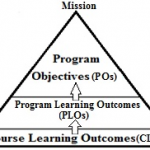An Investigation into Peer-Assisted Learning in an Online Lab Environment
Abstract
Peer learning is one method to encourage meaningful learning in electrical engineering courses. It involves the sharing of ideas, knowledge, and experiences and emphasizes interpersonal learning. However, there are different viewpoints in relation to the best way to implement and assess peer learning in a lab environment, and contemporary literature on online laboratories (OL) rarely explores peer learning opportunities. In this paper, we aim to investigate the benefits of students’ peer learning activity in an online electronics lab course. The key challenge was whether the OL could ensure smooth communication and collaboration between the students.
